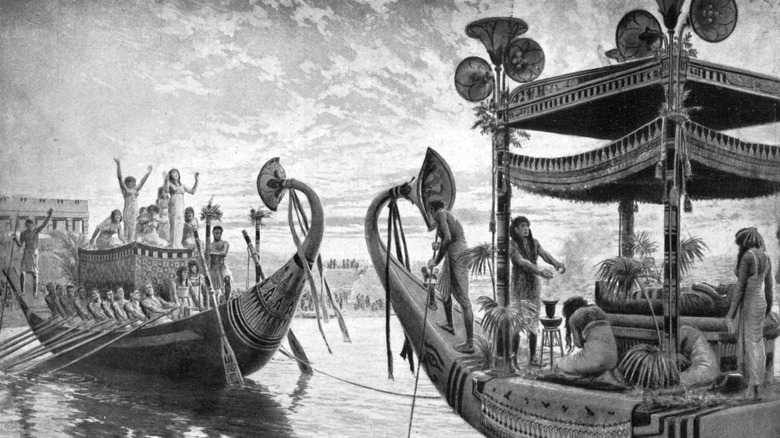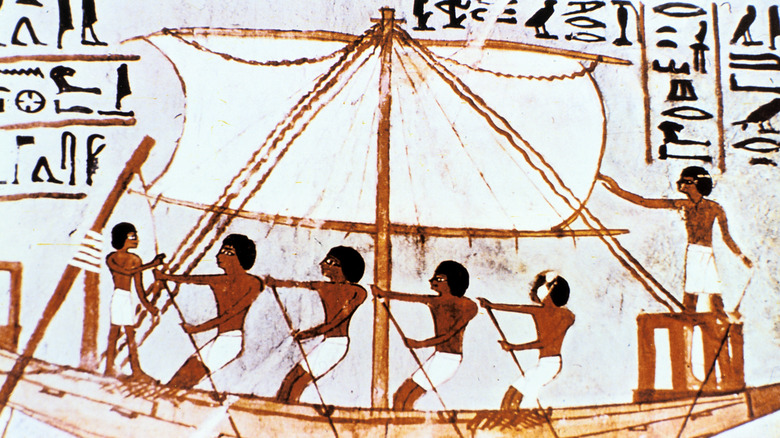The Legend Of The Shipwrecked Sailor Explained
Ancient Egyptian culture still permeates modern-day society, a testament to how influential the Nile civilization was that they can remain so relevant after thousands of years. According to World History Encyclopedia, one of their more mysterious yet highly informative pieces of culture was "The Tale of the Shipwrecked Sailor." Penned around 4,000 years ago, the story gives us a glimpse into how highly the ancient Egyptians thought of their homeland, a sort of esoteric propaganda.
A preserved copy of the story on a sheet of papyrus is all that remains today, but several key bits of information about the tale's creation remain missing, including the author and area of origin. We do know that it comes from the Middle Kingdom era, dated to 2040-1782 B.C., and focuses on the theme of redemption. It was popular alongside other ancient Egyptian texts at the time, and now provides a great insight into the society's religious beliefs and customs.
The tale is short and comedic
According to Storynory, the tale is actually pretty simple. A shipmaster returns from an unsuccessful business voyage abroad and fears what will happen to him when he tells the pharaoh. A servant tries to cheer the master up with a tale of when he was shipwrecked on an island named Punt, filled with food and water. He conversed with a sea serpent, who looked after the shipwrecked sailor for four years until he was rescued and brought back to Egypt. The master then bluntly tells the servant that his story isn't helping.
The quirky little tale is made more interesting by the fact that Punt was a real place that the earlier Egyptians traded with. The ancient Egyptians loved their homeland and had very little interest in exploring foreign lands (via World History Encyclopedia). By the time "The Tale of the Shipwrecked Sailor" was written, Punt had become a mythical place. Though the description of the distant land seems to be positive, the story very much resembles the ancient Egyptian ideals of death and rebirth. The afterlife was seen to be a mirror image of Egypt — again they really, really liked their homeland — and the servant's journey of traveling into the unknown and then happily returning to his homeland would have resonated with many Egyptians, even if his master wasn't too impressed.

